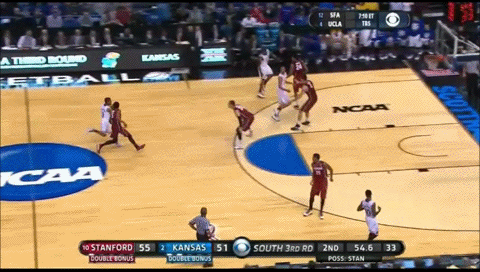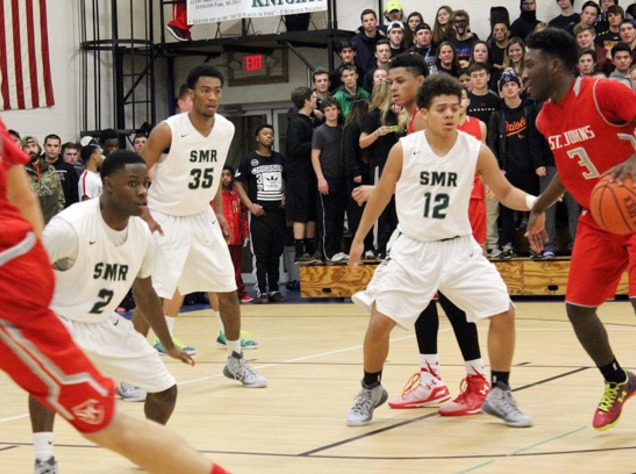Finding Your Niche In The 2-3 Zone
As an aspiring basketball player, it doesn’t seem farfetched to say that you’ll more than likely run into a team running the 2-3 zone, or your coach will prefer that defense to the man-to-man set that you’re used to. In fact, Jim Boeheim, one of the most esteemed coaches in NCAA history, has made the 2-3 a staple of his Syracuse defense. However, most people don’t like the zone because it seems lazy and can be easier to pick apart against the right competition.
Another common misconception about a 2-3 zone is that it’s easier than man-to-man because you never have to leave your zone, but that’s not typically the case. People often neglect that a 2-3 zone involves the entire team sprinting towards the basketball if it’s in their zone, or sprinting to the middle to recover if it isn’t. It takes a very well coached and conditioned basketball team to run a successful 2-3 zone. But depending on where you play, your role and responsibilities will be completely different — use CoachUp’s tips and guides before your next practice and master the zone!

Center
You’re the anchor of a 2-3 defense, so you must not leave the lane and your top priority is snuffing out any offensive penetration. When the basketball is at the top of the three-point line, you should be between the free-throw area and the basket to guard any easy passes. As the basketball moves around the perimeter, you should move closer to the low block on the same side of the ball.
Additionally, you must be wary of any ball side penetration in the lane. Just like everybody else on the floor, you must be sure to stay on your toes. If anybody penetrates the zone defense, you need to step quickly and force a tough shot or a pass.
Forward
When the basketball comes down the floor, you’ll need to be just outside the low blocks with very active hands to stop any backdoor passes or cuts. If the ball is swung to your side, you must sprint towards the basketball with your hands up to deny any shot or penetration. Conversely, once the ball swings back to the other side, then it’s your responsibility to protect the back side of the hoop.
The center will be focused on the ball side, so if anybody tries to cut back door, you have to defend him. On any long shots, you’ll have to box out anybody near you and get the rebound. If not, you’ll just have to spend another twenty-four seconds chasing the offense around. Being a forward in a 2-3 zone is a such demanding position because you must keep up with the basketball as it constantly swings and effectively rebound against bigger opponents.
Guard
First and foremost, you number one priority is to stop any immediate penetration from the opposing point guard. If the point guard doesn’t have the ball in his hands, try sliding closer to the paint to stop any high post passes. However, as it swings your way, you must get out to the perimeter and stop an easy shots, penetration, or passes.
You must be able to stop on a dime and sprint whenever the ball moves. It takes a very quick, well conditioned basketball player to be able to play this position. If you want to be the point defender in a 2-3 zone, you’ll have to dedicate some time to work on explosive movements.
(Related: Read about the ever-versatile hookshot here.)
Huddle Up
A successful 2-3 zone relies on five players working as a unit. Teams try to look for holes in the zone in order to quickly crack the defense. Or, they’ll just swing the ball over and over, just to try and tire out those with demanding responsibilities. This is why it’s essential for every player to keep his hands up and active to minimize these holes. If one player falters, the entire defense does as well.
Although the 2-3 zone depends largely on the coach and his philosophies, it will never work without the players buying in and giving 110% while they’re on the court. So, if your team likes running the 2-3 zone and you find yourself a little confused, consider booking one of CoachUp’s private trainers to give you a leg up. Their expansive knowledge and desire will help you become one of the zone’s most reliable defenders. What are you waiting for?
How useful was this post?
Click on a star to rate it!
Average rating 0 / 5. Vote count: 0
No votes so far! Be the first to rate this post.




